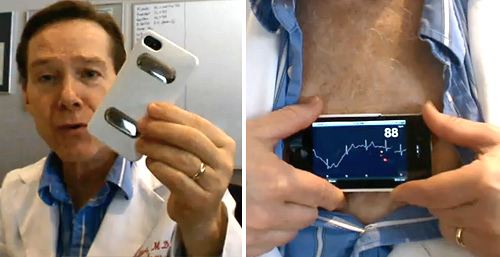Using Mobile Technology in Healthcare
(Posted on TechCrunch 1/01/2012)
Mobile
The ability to have your phone tie to your healthcare record and track medical metrics will have vast repercussions. Though some aren’t cleared for sale in US yet, devices like the Alivecor electrocardiogram can monitor your heart in realtime, send the data to the cloud, and allow your cardiologist to look at it instantly. Other devices are turning phones into otoscopes for looking in your ears, or glucometers for monitoring blood sugar.
Quantified self devices like the Fitbit, Jawbone Up, and more medically themed devices will take what you used to do dsin a clinic or hospital and bring it home. This will allow therapies to be tuned much more effectively than scribbling data on a piece of paper and bringing it in to your doctor months later.
Eventually these devices will converge into the equivalent of Star Trek tricorder that can perform a wide variety of medical functions. There’s even an $10 million X Prize proposed to reward the inventor of the first functional tricorder.
Unfortunately, the strict regulatory system and entrenched, interested of the United States are pushing innovation offshore. A lot of the work for using mobile phones for health care is happening in Africa and India. Since there are few physicians in some of these areas mobile health and telemedicine are taking off. For example, microfluidics allows multiple tests to be done on a small chip at pennies per test, with the ability to connect to the web for analysis. The US will need to find a way to solve these regulatory problems while keeping patients safe, otherwise jobs and revenue could slip abroad.
